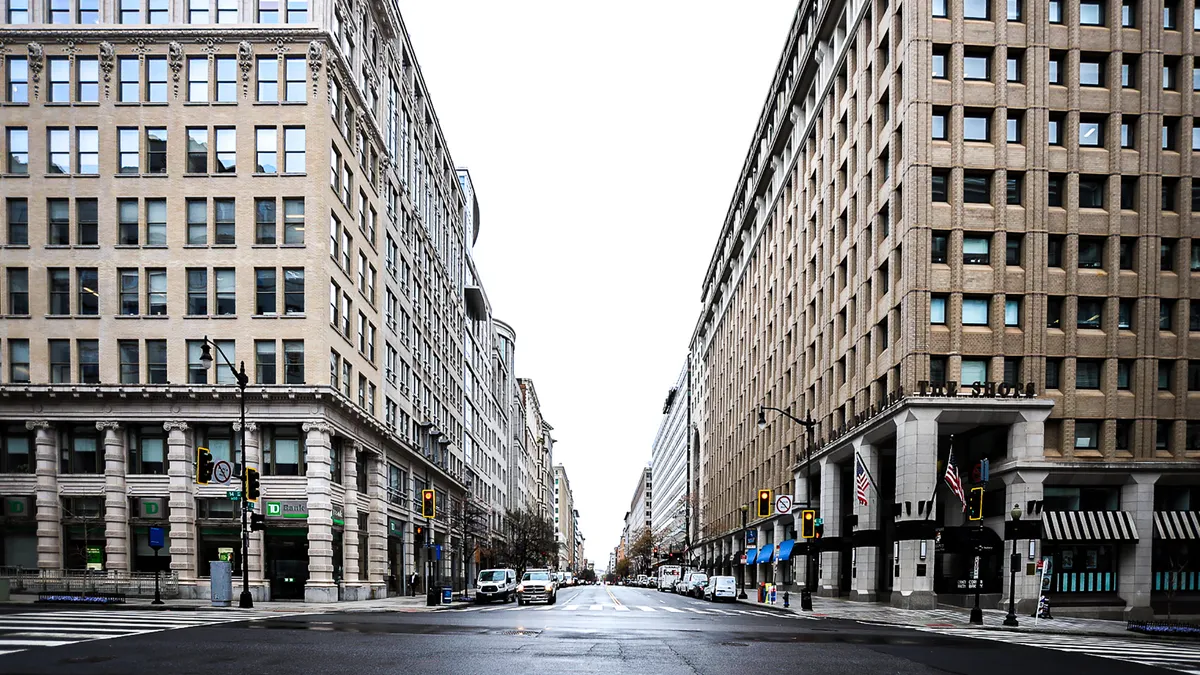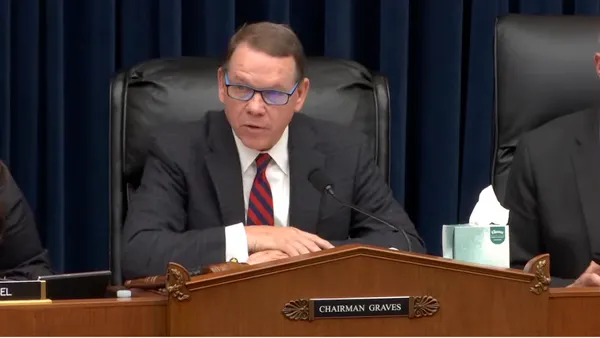A restaurant reform bill that passed in Washington, D.C., on Tuesday instructs Mayor Muriel Bowser to undertake a study and issue a report on the working conditions and wages of app-based delivery workers by July 1, 2025.
The delivery working conditions study could be a first legislative step toward a citywide effort to regulate the pay and conditions of delivery drivers. In New York City, the political process that ended with the establishment of a $17.96 delivery worker wage began with a mandate that the city study the conditions and pay of gig workers.
The comparison between New York City and D.C.’s respective legislation isn’t one-to-one, however. New York City’s sweeping delivery worker protections, which passed in 2022, required the city’s Department of Consumer and Worker Protections to base new regulations on the study. By contrast, the D.C. bill only requires a study be undertaken.
According to the D.C. bill, the study must consider pay rates and methods for third-party delivery workers, total income, expenses, equipment, hours worked, working across apps, and whether a system of benefits portable across the companies would be welcomed by gig workers.
In a statement emailed to Restaurant Dive, a DoorDash spokesperson said it will collaborate with D.C.’s political leadership because “the complex issues covered under this bill will require a broad range of stakeholders coming together.”
DoorDash said the methodology used in the New York City study was flawed, and that it hopes the D.C. study will include a large number of workers and include broad participation from other stakeholders.
The legislation includes two other pieces germane to app-based delivery companies. Under the bill, delivery aggregators may not restrict the delivery radius of a restaurant below four miles, or restrict the number of workers available to deliver orders from a restaurant based on the level of commission the restaurant pays. Aggregators and restaurants must also include language in their contracts allowing delivery workers to use the restaurant’s bathroom.
DoorDash said the changes to radius restrictions could result in higher prices, food quality issues and worker dissatisfaction with longer routes, and called the rule rigid.












